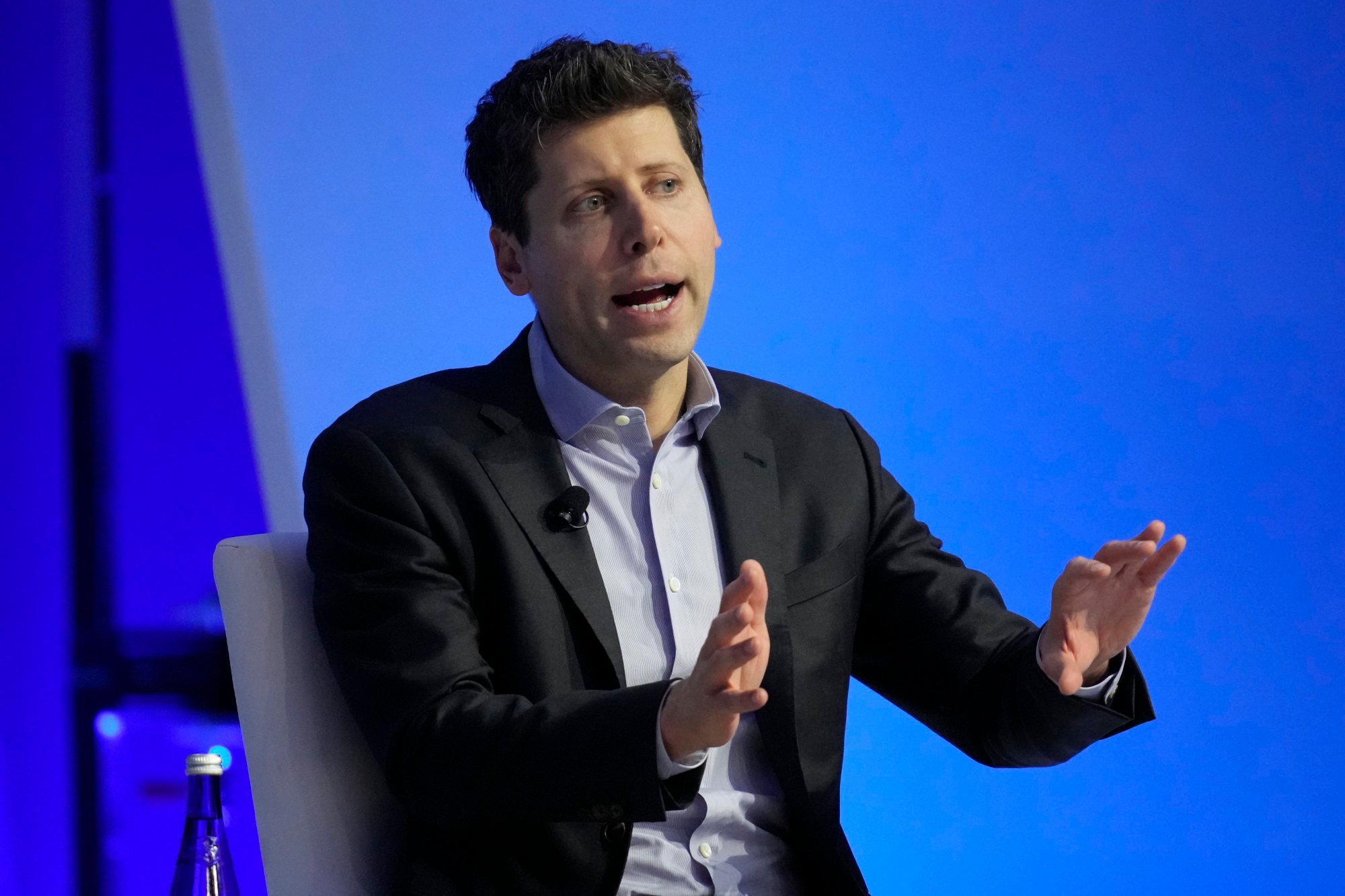
Amazon launches Q, an AI chatbot for corporate clients and a competitor to services from Microsoft, OpenAI
- Amazon Q will be added to Amazon’s business intelligence software, as well as programs for call-centre workers and logistics managers
- The company also released new versions of its home-grown chips, including one designed for AI applications, and deepened its relationship with Nvidia
Amazon.com is rolling out a workplace chatbot called Amazon Q, designed to help corporate customers search for information, write code and review business metrics.
Amazon Web Services (AWS), the retailer’s cloud-computing division, is infusing generative artificial intelligence (AI) into more products, expanding its efforts to reclaim ground in a field led by its main rivals. Microsoft and Alphabet’s Google have announced similar moves.
Existing chatbots powered by generative AI are “genuinely super useful for consumers,” AWS chief executive Adam Selipsky said Tuesday at re:Invent, the company’s conference in Las Vegas. “But in a lot of ways, these applications don’t really work at work.”
AWS – the world’s largest seller of rented computing power and data storage – has had little to prove in recent years at its trade show, where it announces new products to tens of thousands of software developers and business leaders.

But last year’s event was overshadowed by the release of OpenAI’s ChatGPT. The technology quickly wowed users with its ability to generate text and images in a human-like manner from so-called large-language models, which are trained on vast quantities of data.
Amazon, despite decades of expertise building software designed to learn from patterns, found itself fighting to prove it could compete in this emerging arena. The company earlier this year released Bedrock, a software tool designed to make it easier to access other companies’ large language models, as well as some new Amazon models, to what were initially mixed reviews.
This week, the company ramped up its response, with a fusillade of new products and testimonials from companies using Amazon software for AI applications. Amazon said Bedrock has more than 10,000 customers, including Pfizer, which aims to use the product to identify potential acquisition targets and detect manufacturing anomalies.
In an interview on Bloomberg Television, Selipsky touted Amazon’s partnership with Anthropic.
“They’re going to be bringing powerful features around fine-tuning and customisation that, for certain periods of time, will only, only be available on AWS and through Anthropic directly,” he said. “Not through any other cloud. So the relationship is deep, it’s strong, and it’s unchanged.”
China has the most generative AI start-ups to receive funding in first half: report
Amazon Q, which was trained in part on AWS’s internal code and documentation, will be available for developers who use the company’s cloud. It will also be added to Amazon’s business intelligence software, as well as programs for call-centre workers and logistics managers. The company said the assistant can be customised to consider corporate data or an individual’s profile.
To start, Q will cost US$20 per user, per month.
While AWS has millions of corporate clients, who will be able to tinker with Amazon Q to build products for their employees or customers, its products lack the name recognition and massive customer base of Microsoft’s Office or Google’s Gmail, which are getting assistants of their own.
AWS hopes the latest set of products will win over sceptical customers like Manny Medina, who runs Outreach, a Seattle company that makes software for salespeople. An Amazon alumnus, Medina built his start-up on AWS infrastructure. But when he decided to incorporate generative AI tools into Outreach products earlier this year, he decided to use OpenAI’s tools, accessed via Microsoft.
“Amazon has said nothing about their generative AI strategy,” Medina said in an interview last month. “Microsoft outsourced its AI strategy, but at least they had a strategy.”
Before CEO firing, OpenAI researchers warned of dangerous AI breakthrough
Jason Griesenauer, the chief marketing officer of Pear Health Labs, a builder of health and fitness coaching tools, said his company is relying on Google for generative AI and weighing a move away from AWS, which the company uses for other tasks.
“It feels like they’re at least a step or two behind.”
Selipsky, who has likened the generative AI race to the first steps of a marathon, said Tuesday that it is still early days. “Everyone is moving fast, experimenting, learning.”

